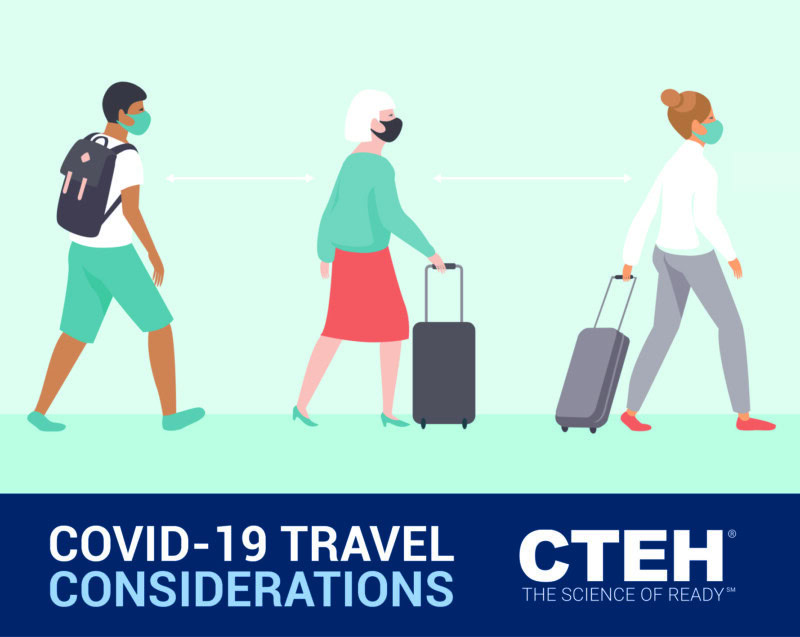Since COVID-19, many of us have postponed or canceled travel plans. But with workplaces transitioning to more regular routines and the holidays around the corner, we’re now considering rescheduling our trips.
As the CDC says, “Travel increases the chance of getting and spreading COVID-19.” So, if we do choose to travel, it’s important we first weigh each mode’s risk of exposure. That way we can take the proper preventive measures to help keep ourselves safe.
With guidance from the CDC, our health and safety experts are outlining the risks below:
Air travel: Current research shows most viruses and germs don’t easily spread on flights due to efficient plane air circulation and filtration systems. However, air travel does require spending time in close contact with others (e.g., security lines) and using frequently touched surfaces. When traveling, wear a mask, limit contact with others, and practice hand hygiene.
Bus or train travel: According to the CDC, bus and train travel “can involve sitting or standing within six feet of others, which may increase your risk of getting COVID-19.” If you opt for this method of travel, the CDC recommends wearing masks, using social distancing and following strict hand hygiene protocols.
Car travel: If traveling with members of your immediate household, car travel presents a lesser risk of exposure to COVID-19 than public transportation. Yet, the CDC notes you may still come into close contact with others during stops for food, gas, or bathroom breaks. If traveling by car, clean and disinfect frequently touched surfaces and improve ventilation, when able, by opening windows or setting the air on non-recirculation mode.
RV travel: As with cars, RV travel is generally considered a less risky transportation option. Nevertheless, the CDC recommends you wear a mask and limit contact with others when outside the RV, particularly if staying at a park or stopping at convenience stores for supplies.
No matter which mode of transportation you select, the CDC stresses you should not travel if you are sick, have been around someone with COVID-19 in the last 14 days, or are at increased risk of severe illnesses from COVID-19.
Have additional questions about how to lessen your risk of exposure during travel? Contact our health and safety experts at webquestion@cteh.com.
Any scientific or medical information included in this article is current as of the date of publication; however, public health knowledge of COVID-19 is rapidly developing. Readers are advised to monitor national, state and local public health agencies for current recommendations regarding any infectious disease.




